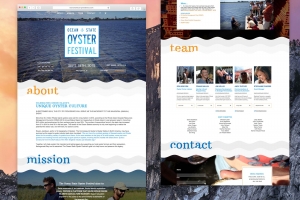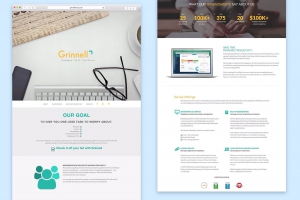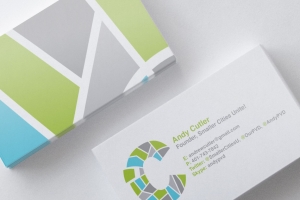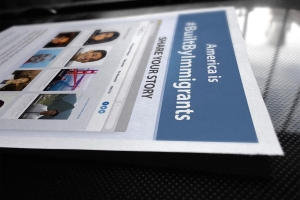In this article we will give a brief overview of Rhode Island in regard to current and emerging industries and make two suggestions for how we, as Rhode Islanders, can set up our economy for success.
It is often said that Rhode Island’s economy has a lot of potential; we, as Rhode Islanders, say this in daily vernacular, budget proposals, elections and even re-elections. And lately, it’s been the motto of the real estate industry.
Over the past few years, local realtors have had to face a growing concern that many of us Rhode Islanders are feeling collectively; that more and more industry professionals are leaning towards neighboring markets. Forget that Massachusetts tends to be more expensive than Rhode Island, where MA’s home values rose by 9.3% compared to RI’s 6.7% during the last year.
To put it simply: we are losing our competitive edge. RI currently has no leading industry in the United States. The ocean is overfished and polluted. The textile industry has fled to Asia where there are weaker worker protections and lower wages. And the jewelry industry has moved to China. The five biggest employers are the state and federal government, two health care companies (LifeSpan and Care New England) and the Catholic Church. The world economy has changed, but Rhode Island has not effectively changed with it. Add to this the modern miracle of robotic automation, and many of the blue collar jobs of the last century have been replaced with machines. This trend is only going to continue.
The US is a services-based economy. The future lies with creative and knowledge workers. We need to diversify our economy and avoid putting all our eggs in one basket this time around.
First, Let’s Give Props Where Props Are Due
Rhode Island has a very rich cultural scene and it’s one that brings national attention. We’re not arguing the merits of this. Providence has a creative impact many times the actual size of the city itself. All of the cultural events at the RISD Museum, the Big Nazo Puppet Lab, Pecha Kucha, and the Cable Car Cinema, generate business to the state’s economy. An article by the Providence Journal states that a dollar spent by a non-profit arts organization becomes more than two dollars for RI businesses.
As entrepreneurs, we believe that our state can capitalize on the already thriving creative culture even more so, by creating an economic safe haven for tech, art and design businesses.
Calling Ourselves the “Creative Capital” Isn’t Enough
Massachusetts has Biotech, Connecticut has hedge funds, and New York has the investment banks. That’s not going to change any time soon, and we are not going to be able to effectively woo those industries to our state.
What about tech start-ups and creative professionals? Unfortunately, we are losing them to our neighboring markets. Upon graduation, Brown, RISD and graduates from the other colleges leave for either New York City or Boston. This doesn’t need to be the case.
READ: “R.I. may defer loans for young entrepreneurs” by The Boston Globe
There are many local start-up initiatives that continue to nurture the entrepreneurial community, such as Betaspring and the Founder’s League. But many remain largely funded by the private sector, without much help from the city or state. Providence tech entrepreneur, Hamzah Ansari of Accelereach, believes that our city needs to become more involved. “Providence has all the ingredients to become a hub of creativity and innovation. The presence of an Ivy League university and a world-class design school on the same hill means there’s never a shortage of incoming talent, but the mixed messages coming out of City Hall don’t really give folks much of an incentive to stay. The sudden closure of the IIP program that invested small amounts of capital in companies that created jobs for Providence residents was one such example”. Hamzah is a graduate of the Providence’s Betaspring accelerator program.
There is a general consensus among Brown graduates that students must leave RI to progress professionally. We need to turn this around. While the Silicon Valley in California was created by a “nexus of causalities” and happy accidents, it will take work by both the private and public sectors to turn Rhode Island around.
Our state is close enough to New York and Boston that design and tech firms can live here and travel to those cities a few times a month to get work.
Investing in the Creative Capital Collectively
We are proposing something radical. We must do what it takes to entice design, art, and tech industries to move here, and stay here. For this we recommend a two pronged approach: tax relief for those industries, and the incorporation of a self-funded development agency that invests in RI-based technology firms.
1. Tax relief: How about a 0% corporate tax rate on the tech industry, design firms, and art firms? (Yes, artists incorporate too.) How about a 0% sales tax on money spent here on tech, design, and art bought here in RI, when the firms are located here?
Let’s remember, that’s not money Rhode Island will lose, but it’s money that will be spent in the state elsewhere. We’ll see it eventually. If we can grow our entrepreneurial culture here in software, hardware and robotics, employees will buy homes here, drive their cars here, and shop here.
2. Incorporation of the Rhode Island Technology Development Agency: This isn’t about making another huge bet on one company, like the 38 Studios debacle— we need to move past that. There needs be a development agency that invests in these firms— making tax-free and taxable bonds for technology firms located in RI (similar to the Illinois Development Finance Authority). We can spread smaller bets to many companies rather than just one large one. A development agency can be self-funded. Let’s not stop investing in RI because of one bad investment. The City of Providence did have such a program recently, but it got shut down due to inadequate oversight and a misallocation of funds. It’s time to try again. We know our politicians are scared to use their political clout to invest in more businesses that end up going belly up. But what is the alternative? We need to have the courage to create a better future. And we need to put pressure on our politicians to move forward.
We need to stop talking about being the creative capital, and take the necessary steps to become a Creative Capital.
By Jay Gidwitz and Stephanie Issa. Originally posted on Geo Properties website as a guest post.












